Related Research Articles
Anabaptism is a Christian movement which traces its origins to the Radical Reformation in the 16th century. Anabaptists believe that baptism is valid only when candidates freely confess their faith in Christ and request to be baptized. Commonly referred to as believer's baptism, it is opposed to baptism of infants, who are not able to make a conscious decision to be baptized.
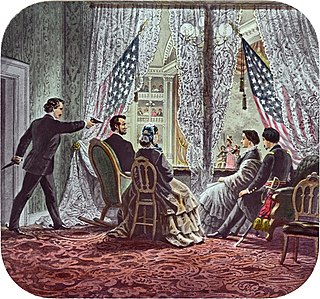
Assassination is the willful killing, by a sudden, secret, or planned attack, of a person—especially if prominent or important. It may be prompted by political, ideological, religious, personal, financial, or military motives. Assassinations are ordered by both individuals and organizations, and are carried out by their accomplices. Acts of assassination have been performed since ancient times. A person who carries out an assassination is called an assassin.
Evangelicalism, also called evangelical Christianity or evangelical Protestantism, is a worldwide interdenominational movement within Protestant Christianity that puts primary emphasis on evangelization. The word evangelic comes from the Greek word for 'good news'. The Gospel story of the salvation from sin is considered "the good news". The process of personal conversion involves complete surrender to Jesus Christ. The conversion process is authoritatively guided by the Bible, the God in Christianity's revelation to humanity. Critics of the conceptualization of evangelicalism argue that it is too broad, too diverse, or too ill-defined to be adequately seen as a movement or a single movement.

The Order of Assassins or simply the Assassins were a Nizari Isma'ili order that existed between 1090 and 1275 AD, founded by Hasan al-Sabbah.

The Huguenots are a religious group of French Protestants who held to the Reformed (Calvinist) tradition of Protestantism. The term, which may be derived from the name of a Swiss political leader, the Genevan burgomaster Besançon Hugues (1491–1532), was in common use by the mid-16th century. Huguenot was frequently used in reference to those of the Reformed Church of France from the time of the Protestant Reformation. By contrast, the Protestant populations of eastern France, in Alsace, Moselle, and Montbéliard, were mainly Lutherans.

The Saint Bartholomew's Day massacre in 1572 was a targeted group of assassinations and a wave of Catholic mob violence directed against the Huguenots during the French Wars of Religion. Traditionally believed to have been instigated by Queen Catherine de' Medici, the mother of King Charles IX, the massacre started a few days after the marriage on 18 August of the king's sister Margaret to the Protestant King Henry III of Navarre. Many of the wealthiest and most prominent Huguenots had gathered in largely Catholic Paris to attend the wedding.

A pastor is the leader of a Christian congregation who also gives advice and counsel to people from the community or congregation. In Lutheranism, Catholicism, Eastern Orthodoxy, Oriental Orthodoxy and Anglicanism, pastors are always ordained. In Methodism, pastors may be either licensed or ordained.

The Counter-Reformation, also sometimes called the Catholic Revival, was the period of Catholic resurgence that was initiated in response to, and as an alternative to, the Protestant Reformations at the time. It is frequently dated to have begun with the Council of Trent (1545–1563) and to end with the conclusion of the European wars of religion in 1648, though this is controversial. The broader term Catholic Reformation also encompasses reforms and movements within the Church in the periods immediately before Protestantism or Trent and lasting later.
A Christian denomination is a distinct religious body within Christianity that comprises all church congregations of the same kind, identifiable by traits such as a name, particular history, organization, leadership, theological doctrine, worship style and, sometimes, a founder. It is a secular and neutral term, generally used to denote any established Christian church. Unlike a cult or sect, a denomination is usually seen as part of the Christian religious mainstream. Most Christian denominations refer to themselves as churches, whereas some newer ones tend to interchangeably use the terms churches, assemblies, fellowships, etc. Divisions between one group and another are defined by authority and doctrine; issues such as the nature of Jesus, the authority of apostolic succession, biblical hermeneutics, theology, ecclesiology, eschatology, and papal primacy may separate one denomination from another. Groups of denominations—often sharing broadly similar beliefs, practices, and historical ties—are sometimes known as "branches of Christianity". These branches differ in many ways, especially through differences in practices and belief.
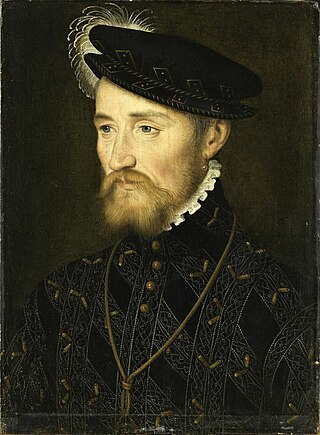
François de Lorraine, 2nd Duke of Guise, 1st Prince of Joinville, and 1st Duke of Aumale, was a French general and statesman. A prominent leader during the Italian War of 1551–1559 and French Wars of Religion, he was assassinated during the siege of Orleans in 1563.
The Ulster Unionist Labour Association (UULA) was an association of trade unionists founded by Edward Carson in June 1918, aligned with the Ulster Unionists in Ireland. Members were known as Labour Unionists. In Britain, 1918 and 1919 were marked by intense class conflict. This phenomenon spread to Ireland, the whole of which was part of the United Kingdom at the time. This period also saw a large increase in trade union membership and a series of strikes. These union activities raised fears in a section of the Ulster Unionist leadership, principally Edward Carson and R. Dawson Bates. Carson at this time was president of the British Empire Union, and had been predisposed to amplify the danger of a Bolshevik outbreak in Britain.
A Diocesan Administrator is a provisional ordinary of a Catholic particular church.

Dead on Target is the first book in The Hardy Boys Casefiles series of detective novels. It was first published in the year 1987.

The term Eastern Protestant Christianity encompasses a range of heterogeneous Protestant Christian denominations that developed outside of the Western world, from the latter half of the nineteenth century, and retain certain elements of Eastern Christianity. Some of these denominations came into existence when active Protestant churches adopted reformational variants of Eastern and Oriental Orthodox liturgy and worship, while others originated from Orthodox groups who were inspired by the teachings of Western Protestant missionaries and adopted Protestant beliefs and practices.
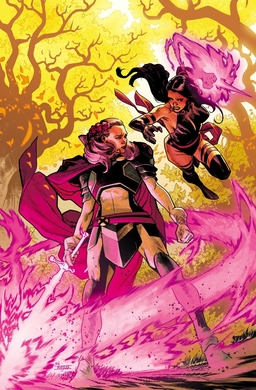
Psylocke is the name of two connected fictional mutant superheroes appearing in comic books published by Marvel Comics, commonly in association with the X-Men.
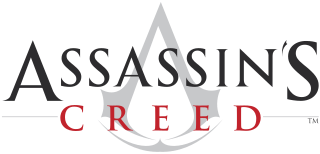
Assassin's Creed is a historical action-adventure video game series and media franchise published by Ubisoft and developed mainly by its studio Ubisoft Montreal using the game engine Anvil and its more advanced derivatives. Created by Patrice Désilets, Jade Raymond, and Corey May, the Assassin's Creed video game series depicts a fictional millennia-old struggle between the Order of Assassins, who fight for peace and free will, and the Knights Templar, who desire peace through order and control. The series features historical fiction, science fiction, and fictional characters intertwined with real-world historical events and historical figures. In most games, players control a historical Assassin while also playing as an Assassin Initiate or someone caught in the Assassin–Templar conflict in the present-day framing story. Considered a spiritual successor to the Prince of Persia series, Assassin's Creed took inspiration from the novel Alamut by the Slovenian writer Vladimir Bartol, based on the historical Hashashin sect of the medieval Iran (Persia).

Protestantism is a branch of Christianity that emphasizes justification of sinners through faith alone, the teaching that salvation comes by unmerited divine grace, the priesthood of all believers, and the Bible as the sole infallible source of authority for Christian faith and practice. The five solae summarize the basic theological beliefs of mainstream Protestantism.

In Protestant usage, a consistory designates certain ruling bodies in various churches. The meaning and the scope of functions varies strongly, also along the separating lines of the Protestant denominations and church bodies.
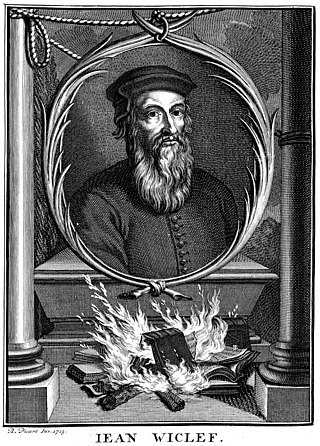
Proto-Protestantism, also called pre-Protestantism, refers to individuals and movements that propagated various ideas later associated with Protestantism before 1517, which historians usually regard as the starting year for the Reformation era. The relationship between medieval sects and Protestantism is an issue that has been debated by historians.
References
This article incorporates text from a publication now in the public domain : Wood, James, ed. (1907). The Nuttall Encyclopædia . London and New York: Frederick Warne.{{cite encyclopedia}}: Missing or empty |title= (help)